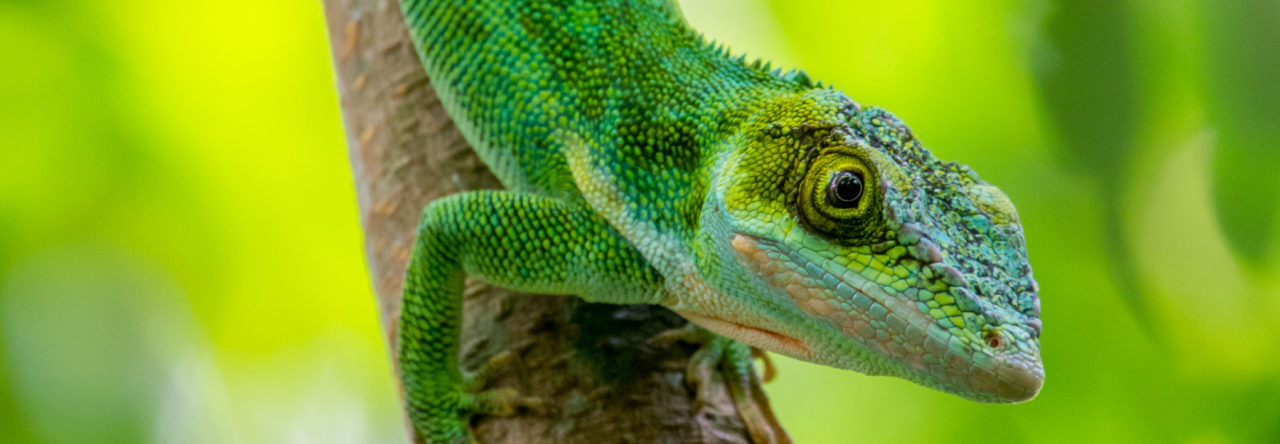
CRISPR-based gene editing has been successfully performed in a wide variety of vertebrate species, including fish, amphibians, birds, and mammals. Therefore, it may come as little surprise that we recently added anoles to the list of CRISPR-edited animals. However, to perform gene editing you must get CRISPR reagents (Cas9 protein and a gene specific guide RNA) into the appropriate embryonic stage or cell type of the organism. The most common approach is to inject the Cas9/guide RNA complex (Cas9 RNP) into freshly fertilized eggs using a very fine, hollow glass needle. Injection of fertilized eggs can be relatively straightforward in species with external fertilization, especially if the species can be induced to spawn in captivity. In species with internal fertilization, accessing early stage embryos is more challenging. In mammals, many decades of work have led to very effective methods to isolate, inject, and transfer embryos from a donor female to a host female. By comparison, methods to isolate and manipulate squamate embryos at the single cell stage have not been established. In addition, the females of many squamate species store sperm, making it difficult to determine the precise time point at which oocytes are fertilized. Given these challenges, we decided to try injecting Cas9 RNPs into unfertilized Anolis sagrei oocytes rather than fertilized eggs. In October of 2018, graduate student Ashley Rasys generated the world’s first gene edited reptile, an albino Anolis sagrei, using this approach.
With over 20,000 protein coding genes in the Anolis sagrei genome, there is much interesting anole biology to explore with gene editing! To teach other researchers how to perform gene editing in anoles, we are holding a gene editing workshop at the University of Georgia from June 14, 2020 – June 20, 2020. This workshop is funded through the NSF EDGE program and will walk participants through each step of the gene editing procedure. Students will learn the anesthesia, surgical, and oocyte microinjection methods we have developed in anoles. The course will also cover CRISPR guide design, Cas9 RNP preparation, essential equipment, and screening methods for the creation and detection of gene edited lizards. Since participants will be working directly with lizards, space will be limited to 10 students.
Workshop Application Process
We are now accepting applications for our 2020 gene editing workshop, which will be held at the University of Georgia in Athens, GA from June 14 – June 20. Applicants should prepare a single PDF that contains the following: 1) A one-page description of your research interests that describes why you want to attend the workshop, 2) your CV, and 3) a letter of support from your research advisor (required for graduate student and postdoc applicants). These materials should be emailed to LizardGeneEdit (at) gmail (dot) com. Priority will be given to applicants that have facilities for housing lizards or plans to establish such a facility, so please indicate whether your lab has infrastructure for breeding lizards in your one-page research statement. The application deadline is February 28, 2020. Applicants will be notified whether they have been accepted to participate in the workshop by March 20, 2020. There will be a $100 registration fee for workshop participants, but lodging and meals will be subsidized.
- Anole Gene Editing Workshop - January 19, 2020


Leave a Reply